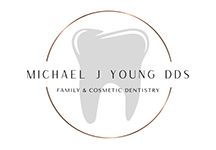 Snoring is common, but most people don’t consider it a cause for concern beyond the disturbing noise it generates. For some patients, though, snoring might be severe enough to affect their overall health, or it might be merely a symptom of a more serious underlying disorder (like obstructive sleep apnea).
Snoring is common, but most people don’t consider it a cause for concern beyond the disturbing noise it generates. For some patients, though, snoring might be severe enough to affect their overall health, or it might be merely a symptom of a more serious underlying disorder (like obstructive sleep apnea).
Treating snoring and sleep apnea are an important part of general dental care, and can often be accomplished with a comfortable, custom-designed oral appliance. The appliance keeps your airway clear to help you stop snoring and eliminate the contributing factors to obstructive sleep apnea.
The Causes of Snoring
As you sleep, most of the muscles throughout your body relax enough to become almost inoperative. However, your throat muscles should remain active to clear your throat and airway of saliva and oral tissues. Patients who snore often do so because of oral and throat tissues obstructing the airway as they relax too much. The obstruction creates a smaller channel for your breath to pass through, and snoring is the result of your throat tissues and muscles vibrating against the increased air pressure.
The Dangers of Sleep Apnea
Patients with obstructive sleep apnea will snore loudly as their airway becomes clogged, and then stop suddenly as the airway becomes completely blocked and they stop breathing. The absence of air causes the brain to panic and jumpstart the body’s breathing process again, restarting the apnea cycle. Such episodes will repeat themselves hundreds of times in a single night, depriving you of deep, restful sleep. Overtime, sleep apnea will lead to sleep and oxygen deprivation and can increase your risk of certain systemic issues, including;
- Diabetes
- Daytime drowsiness/fatigue
- Complications with medicine/medical treatment
- High blood pressure and other cardiovascular troubles
- Heart disease or heart attack
- Stroke
